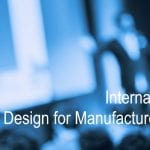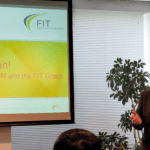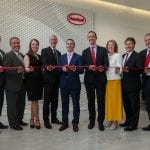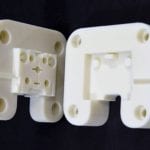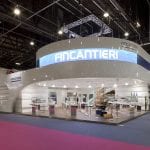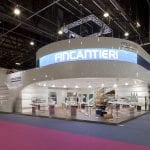America Makes & ANSI release updated roadmap for additive manufacturing standardization
Arguably one of the biggest challenges currently facing the additive manufacturing industry is standardization. Fortunately, there are a number of efforts being made to establish guidelines and first steps towards standards for the manufacturing technology. In a significant step, America Makes, the U.S.’ national AM innovation institute, has teamed up with the American National Standards…..
Continue readingAmerica Makes & ANSI release updated roadmap for additive manufacturing standardization
Arguably one of the biggest challenges currently facing the additive manufacturing industry is standardization. Fortunately, there are a number of efforts being made to establish guidelines and first steps towards standards for the manufacturing technology. In a significant step, America Makes, the U.S.’ national AM innovation institute, has teamed up with the American National Standards Institute (ANSI) to publish version 2.0 of their Standardization Roadmap for Additive Manufacturing.
Funded by the Department of Defense (DoD) and supported by over 300 people from 175 public and private sector organizations, the standardization roadmap 2.0 was put together by America Makes and the ANSI Additive Manufacturing Standardization Collaborative (AMSC), a group formed with the aim of accelerating the establishment of AM standards and specifications across the industry.
“We are extraordinarily pleased at the AMSC’s continued progress to define a coherent set of additive manufacturing standards and specifications that will benefit the industry,” said Rob Gorham, executive director of America Makes.
The Standardization Roadmap for Additive Manufacturing 2.0 provides an outline of the current state of additive manufacturing standardization and highlights 93 “gaps” in the industry, where no standardization currently exists. 18 of the gaps have been identified as high priority ones, and 65 of those listed include additional pre-standardization R&D. The document also offers an update of previously identified gaps, some of which have been addressed by standardization since the publication of the last report.

Included in the 18 high priority standardization gaps are Metal Powder Feedstock Sampling, Machine Calibration and Preventative Maintenance, Recycle & Re-use of Materials, Environmental Conditions: Effects on Materials, Protection of Machine Operators, Cleanliness of Medical AM Parts and others.
“Coordination of standards development activity in emerging technology areas is something that ANSI excels at, and we have been very pleased to partner with America Makes to define the standards needed to help grow the additive manufacturing industry,” commented Joe Bhatia, president and CEO of ANSI.
The collaboration between America Makes and ANSI AMSC began in March 2016, as they set out with the goal of coordinating and development of industry-wide additive manufacturing standards. Notably, the AMSC’s role is not to establish standards or specifications, but to promote coordination across the industry.
The new Standardization Roadmap for Additive Manufacturing 2.0 can be downloaded on ANSI’s AMSC website.
DfAM meets DFMA at upcoming International Forum in Rhode Island
DFMA is an existing concept for software used in Design for Manufacturing and Assembly. As AM seeks to eliminate the “assembly” from manufacturing, the thirty-third annual International Forum on Design for Manufacture and Assembly (DFMA), organized by Boothroyd Dewhurst, will also focus on how AM – and specifically Design for Additive Manufacturing – will affect the future of DFMA.
Set to be held on September 11-12, 2018, at the Omni Providence Hotel, Providence, RI, USA, The Forum is the foremost worldwide conference on product simplification and early cost estimating. It is organized for development and manufacturing teams, procurement professionals, innovation managers and entrepreneurs across a wide range of industries.
Specifically, additive manufacturing (AM) equipment provider Renishaw is going to explain “generative design” and innovative solutions to complex AM challenges as developed and tested in its Canadian Solution Centre. In addition Chinese automotive company BAIC (Beijing Automotive Industry Holding Co., Ltd.) will discuss using DFMA to control whole vehicle costs and Goldense Group will address the maturing face of globalization, as countries and states increasingly focus policies and resources on becoming centers of excellence for selected industries and technologies—specifically those with high DFMA requirements.
“The 2018 Forum has a strong international focus with DFMA users ready to discuss their costing, design and production methods,” said John Gilligan, president of Boothroyd Dewhurst, Inc. “Each year our manufacturing community tackles ever-evolving approaches for securing a competitive advantage. Increasingly this is for worldwide markets and includes advances in production such as additive manufacturing, better ways of implementing Lean or improving systems engineering. We welcome people to join our Forum discussion, which centers on DFMA yet envelops many aspects of product development in one setting.”

A competitive advantage
This year’s Forum on “Global Competitive Advantage” showcases the DFMA successes and overall strategy of manufacturers that make and market products internationally—increasingly under monetary and trade uncertainties. Examples and metrics will be shared illustrating tested approaches to improving design and production economies that are foundational to weathering changing sales and trade environments. The engineering and manufacturing-based outcomes from DFMA help manufacturers excel in domestic markets and improve cost structures for Build-Where-You-Sell.
A Distinguished DFMA Supporter of the Year winner, Bill Devenish, will deliver four Kohler group papers on subjects ranging from early, data-driven product development to using DFMA very late in “the ship has already sailed” phase of production. Additional presenters include Nick Dewhurst of Boothroyd Dewhurst, Inc., (Opening Address and DFMA Overview), Swiss-based Endress & Hauser (The Million Dollar Story of DFMA at E&H), Starkey Hearing Technologies (The Positive Impacts of DFMA for Hearing Aid Development), and Dynisco (DFMA and Systems Engineering Approaches), among others.
FIT Additive Manufacturing Group expands into Japanese market with new subsidiary
Headquartered in Germany, FIT Additive Manufacturing Group has been increasing its global presence over the years, with sales and project management operations in the U.S., Romania and Russia. Now, the additive manufacturing and rapid prototyping group has entered the Japanese market with the founding of a new, fully owned subsidiary: FIT Japan K.K.
Founded in 1995, FIT Additive Manufacturing Group has served customers in the automotive, medical and special machinery industries. Presently, it operates the world’s largest aluminum additive manufacturing facility in Lupburg, Germany, as well as manufacturing sites in Southern Germany and Boston, a software development center in Romania and sales and project management operations in Russia and the U.S.
With its recent expansion to Japan, FIT AG is hoping to introduce its prototyping and manufacturing services to the Japanese market, a move it says is both strategic and logical. According to FIT AG, an analysis of the Japanese AM and services market showed a shift in the country’s manufacturing strategies, transitioning from prototypes to the production of final parts and tools.
Despite this shift, FIT AG notes that the country’s technical development still “lags behind” that of Europe, which means there is opportunity for the company to establish itself there. The overall growth in the AM market in Japan, says FIT AG, is owed to the growing demand from the healthcare, architecture and, above all, automotive manufacturing industries.
“Step by step, we will evolve from a foreign contract manufacturer to an insider in the Japanese innovation system,” said Carl Fruth, CEO of FIT Additive Manufacturing Group. “To this goal, we have established a Japanese subsidiary to serve as a direct interface for our ADM services to the market and to introduce us to important Japanese customers. Starting from a position as a global technology leader, we intend to open up the Japanese as well as the Asian markets and to consolidate business in the long run.”

Notably, the new FIT Japan K.K. subsidiary will not be starting from scratch, so to speak, in the Japanese market, as a number of FIT AG’s existing clients are Japanese companies. The company will leverage FIT AG’s expertise in volume manufacturing of AM parts and its Additive Design and Manufacturing (ADM) approach, which emphasizes the importance of design for additive manufacturing.
Heading the new subsidiary is Mr. Yasushi Murata, who has been an “experienced insider” in the Japanese industry (and especially its automotive sector) for roughly three decades. “When learning about FIT AG and its ADM concept for the first time, I was immediately intrigued by its potential.” said Murata. “I’m overjoyed to empower Japanese companies with FIT’s expertise. I’m not exaggerating… I’m convinced that FIT AG can act as a game-changer for the Japanese productive industry of today.”
Henkel European hub for 3D printing technology opens in Dublin, as company eyes production
As we reported late last year, adhesive and materials giant Henkel was working on a multi-million dollar 3D printing research facility. The company has now finished and officially opened the Henkel European hub for 3D printing and Innovation and Interaction Center (IIC) at its Tallaght site near Dublin, Ireland.
The IIC, which is the first in a new generation of global industrial customer centers, is set to become Henkel’s European regional hub for technical presentations, demonstrations, training, testing as well as customer service for 3D printing solutions. During the official inauguration Henkel welcomed the Irish Minister of State for Housing and Urban Renewal, Damien English, representatives from governmental organizations in Ireland as well as customers and senior management of its ecosystem partners Carbon and HP.
As demonstrated by its close collaboration with two of the 3D printing hardware companies that are most focused on AM for final part production, Henkel is looking to use its expertise in transforming industrial manufacturing processes to drive adoption in the rapidly growing market for additive manufacturing, beyond prototyping to final parts production.
Based on strategic partnerships with technology leaders, the Adhesive Technologies business unit offers end-to-end solutions for 3D printing to its customers, including novel materials, specialized equipment and a broad portfolio of customized post-processing solutions.

Picture Colm Mahady / Fennells – Copyright© Fennell Photography 2018.
Expanding AM R&D
To further expand its R&D and application capabilities globally the company is investing into new regional innovation and customer centers. The IIC in Dublin, which is in proximity to the existing R&D and production facility for 3D printing Loctite resins, comprises laboratories, customer service offices, meeting rooms and 3D Printing facilities. It is equipped with Carbon and HP printers in addition to specialized Henkel equipment, technology and devices.
As the European hub for the technology, the IIC has been designed to excite and engage Henkel’s customers across various industries such as medical devices, automotive, consumer goods and manufacturing to discover and use Henkel´s high-impact solutions for transforming final parts production.
“The opening of our first Innovation and Interaction Center in Ireland will further strengthen our expertise and capabilities to bring 3D Printing solutions into manufacturing processes of our broad customer base,” explained Michael Todd, Global Head of Innovation at Henkel Adhesive Technologies, during the event.
“The close connection to our scientists and engineers as well as to the production will enable us to accelerate the development of new solutions for our customers and will foster the identification and realization of tailor-made 3D Printing applications across industries,” Philipp Loosen, Head of 3D Printing at Henkel Adhesive Technologies, added.
This appears to be only the beginning, as later this year Henkel is expected to open two more regional centers for 3D printing, one in Rocky Hill for North America and another one in Shanghai for Asia.
Prodways, Openlab, and Platinum 3D boost industrial product development with 3D printed molds
In a joint project focusing on incorporating 3D printing technologies into the production of plastic injection molds, Prodways Technologies, Openlab by Schneider Electric and the Platinium 3D platform are teaming up to accelerate the development cycle of industrial products.

One of the major challenges for the Industry of the Future will undoubtedly be to release new products onto the market faster in order to stay competitive. At the same time, international standards and certification requirements burden electricity manufacturers with long certification processes for their components, which must be produced using final material prototypes. In order to reduce time to market, the R&D departments of electrical component manufacturers such as Schneider Electric, a global leader, need to produce their prototypes fast in order to obtain certification and perform functional tests with the final material. Consequently, the challenge is to be able to break free of traditional tooling – a long, expensive process – by creating the prototype molds through 3D printing and to then inject final material parts and speed up the iterations needed to get certified before producing the final production mold.
With nearly 400 product launches per year and revenue in excess of €24 billion in 2017, Schneider Electric has placed strategic importance on technological innovation focused on improving time to market. To achieve this, Schneider Electric utilizes its Openlab, located in downtown Grenoble, to support development projects for new offers.
To quote Frédérick Choupin of Schneider Electric: “Our goal is to use cutting-edge technologies to shorten the product development cycle. With 3D printing and agile project management, we’re in a position to overcome the traditional obstacles of long-established processes and market an innovative product 60% faster.”
With this in mind, Openlab by Schneider Electric has been working with Prodways Technologies and the Platinium 3D technology platform for over a year to incorporate MOVINGLight technology into the development cycle of its electrical components in order to print plastic injection molds in 3D. Ultimately, nearly 25 tooling molds were printed in 3D, and as a result, hundreds of parts could be injected on an injection molding machine under manufacturing conditions in order to create parts that matched the final shape and complied with the certification prerequisites with the correct polymer grade.

Sébastien Guenet, Deputy Executive Officer of UIMM Champagne-Ardenne (Champagne-Ardenne Union of Metallurgies Industries), Platinium 3D, said, “Typically, producing an aluminum mold for tooling prototypes of parts that need to be certified as final material has a lead time that can range from several weeks to two months, and that drastically slows down the development cycle.”
“With 3D printing, we can produce tooling prototypes in a few hours, modify them immediately based on the needs of the functional tests and then inject final material parts. These final material parts are sent directly for certification while the aluminum mold is still being produced. Thanks to this process, we considerably speed up the new-product development cycle since the final material parts are already certified even before the aluminum production mold is finalized.”
Thanks to Prodways’ 3D printing materials that boast high mechanical and heat resistance, Openlab by Schneider Electric and Platinium 3D have injected charged and nonflammable polyamide parts. Glass-charged polyamide is one of the most commonly used materials for technical components where heat resistance is mandatory; it is standard for many industries and an indispensable prerequisite for obtaining certifications.
3D printing, which is essential for developing industrial products, is therefore poised to play a key role in the growth of the businesses of the future. Through this partnership, Prodways Technologies, Openlab by Schneider Electric and Platinium 3D are reaffirming their central role as trailblazers paving the way to innovation in French industry.
NCMS opening AM center in Maryland HEAT Center

The National Center for Manufacturing Sciences (NCMS) plans to establish a new manufacturing innovation center in Harford County, Maryland. Focusing on developing next-generation industrial additive manufacturing, materials, and processes, this facility will house leading engineers and the world’s most powerful production technology. Collaboration at the center will lead to scientific breakthroughs in metallurgy and plastics, as well as the launch of new factory machinery that will transform the way U.S. producers make aircraft, automobiles, munitions, medical devices, and other products.
“As a proven leader in advanced technology innovation development, NCMS has the unique ability to engage and work with a wide variety of partners while finding the critical infrastructure, talent, and investment for successful program and project management,” said NCMS president, Rick Jarman. “We believe Aberdeen, Maryland is the place where these vital innovation ingredients come together and are key to the new industrial revolution.”
Led by U.S. Senators Chris Van Hollen, D-MD and Lindsay Graham, R-SC, the new center has received bipartisan support from across the country, indicating the tremendous interest in capturing the impact and capabilities of this critical technology to maintain and strengthen U.S. manufacturing competitiveness.
“I’m pleased to welcome NCMS to Maryland and add this national innovation leader to our State’s manufacturing ecosystem,” said Sen. Van Hollen. “I look forward to seeing how the collaboration of NCMS alongside industry leaders will transform manufacturing – enabling rapid production at lower cost.”
Partners of the new center include the State of Maryland, the Maryland Department of Commerce, and Harford County, Maryland, as well as founding members 3D Systems and Applied Materials.
“3D Systems is proud to have helped NCMS lead this initiative,” said Neal Orringer, vice president, alliances & partnerships, 3D Systems.
“It’s a tremendous opportunity to partner with key government and industry leaders such as Applied Materials to drive innovation and U.S. competitiveness. This effort is designed to equip our military with the best technology possible at the best value to the taxpayer.”
This collaboration between government, industry, and academia will advance and build on breakthrough, non-traditional technologies to enable U.S. manufacturers with large-scale additive manufacturing, unprecedented speed in part production, novel designs and materials, dramatic cuts in cost and delivery times, and point-of-need part manufacturing. The goal is to provide U.S. troops with the most updated platforms and tools available, so they are prepared to face any situation,
NCMS’ long-standing, proven and sustainable success is possible because of its effective collaboration with world-class organizations that deliver solutions to enhance our nation’s manufacturing capability. Building on its extensive relationships with the U.S. Army, NCMS expands this connectivity to the Army Research Laboratory, the Army’s corporate laboratory. Through its material science research effort, ARL executes fundamental research for scientific discovery and innovative problem-solving to provide superior materials and devices needed to achieve lasting strategic land power dominance.
“Our administration is pleased to see two years of planning and partnership come to fruition with this new manufacturing innovation center,” said Governor Larry Hogan. “This unique consortium – which brings significant opportunities to Harford County, Maryland, and the region – will rapidly accelerate manufacturing opportunities in our state, leading to more jobs and a stronger economy.”
The State of Maryland, like NCMS, is committed to enhancing the global competitiveness of North American manufacturing. By creating a center focused on continued innovation in advanced materials, this region of Maryland will become a hub of collaboration among researchers, the defense community and industry for the future of materials and manufacturing.
Harford County is providing leased lab, training and administrative space for the facility at the Higher Education and Applied Technology Center or HEAT Center.
“We are excited to work with NCMS and look forward to being active partners in this unprecedented consortium for new manufacturing technology,” said Harford County Executive Barry Glassman.
Titomic & Fincantieri to test materials in first step of evaluating AM for shipbuilding
Titomic & Fincantieri to test materials in first step of evaluating AM for shipbuilding
Since partnering with shipbuilding company Fincantieri last month, Australian metal AM company Titomic has signed a Material Science Testing (MST) agreement with Fincantieri Australia. The agreement is the first step in evaluating Titomic’s Kinetic Fusion technology’s viability for Fincantieri’s manufacturing processes. As part of the new agreement, Titomic will conduct various tests on a Fincantieri…..
Continue reading

